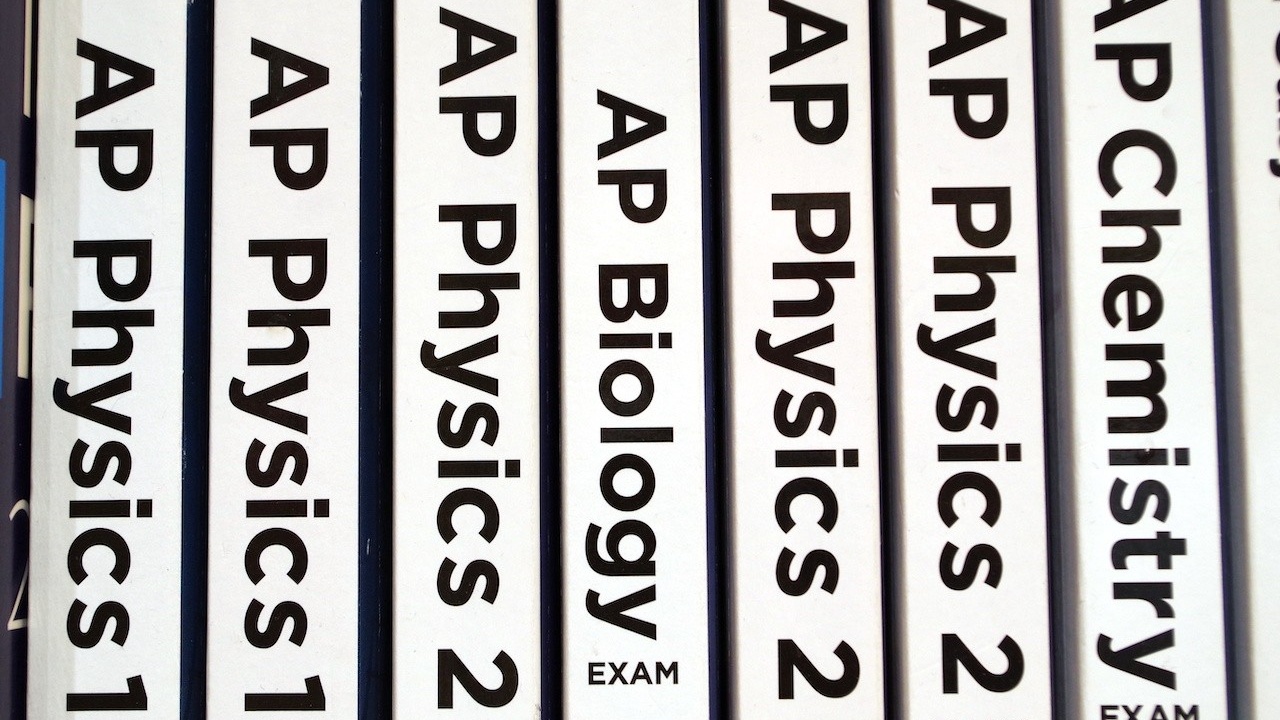5 Last-Minute Study Tips for Acing Your AP Exam
May 03, 2022
Easy & simple tips to help you take your AP Exam under pressure and get the score you deserve.
You’re down to the wire, and you realize you don’t feel confident about your upcoming AP exam, but you don’t know what to focus on, and the pressure is making you crazy!
Don’t worry. I’ve got you covered!
My 5 last-minute tips will help you take your AP Exam, minimize pressure, and maximize your knowledge to get the best score possible.
1) Have the Right AP Test Mindset & Not Freak Out if You’re Behind in Your Studying
If you’re behind, don’t freak out (it will only slow your progress and possibly ruin your test).
The best way to get started is just to get started.
Don’t focus on your weaknesses, but do what you’re comfortable with, getting yourself into a rhythm. Once you are on a roll, add in something more challenging. Once you have a routine set and are committed to studying, start attacking your weaknesses.
Here’s how:
-
If you are in a subject that requires chronological knowledge, start looking at decades or centuries and find key events to anchor your knowledge to (having an anchor point as a frame of reference can help you recall finer details). Remember, events create characters and/or historical figures, and characters and/or historical figures create events. Starting with either of these will be the best place to start if you lost.
-
If you are studying a subject that is centered on cause & effect, search for the cause! Too often, students focus only on results (effect) and cannot establish that the results happened after and because of the cause.
-
If you are studying a subject based on principles & applications, always identify the first principle first (i.e., the most basic fundamental). Without understanding the core element and proper sequence, you will mistakenly fall for the partial or trick answer choices the test throws your way.
Remember, you know more than you realize. Taking what you know and understanding how to apply that knowledge is vital at this point.
Take Care of Your Body

The biggest mistake students make is taking the test tired. Being loopy from exhaustion does not make for a great test experience. If your knowledge base is weak, being dazed and confused won’t help.
Remember: your body is an extension of your brain. It’s challenging to perform on the exam if your mind and body aren’t in peak condition. To give yourself every advantage, eat healthily, get 30 to 45 minutes extra sleep each night, and minimize caffeine for a few days before the exam to let your body slow down and recover (don’t worry, you can have some caffeine without sugar before the exam - just don’t overdo it!).
Day of the Test - Get Game Ready
On the test day, get up a little earlier than usual and do some light exercise to get the blood flowing (run around the block or go for a walk, but do something to wake up). Then, for the sake of everyone who sits near you, take a shower! Eat a healthy breakfast without too much sugar or fat, then go to school 15 or 20 minutes early.
Like a professional athlete who gets to the game early to warm up or a musician who does a soundcheck before the audience gets there, get to school early to run through your notes and do some pretest warm-ups.
Once at school, resist the urge to get out of your car (you will see friends end up talking). Stay in the car or find a quiet place away from everyone and run through some easy practice problems. You are just getting your brain engaged and ready to focus. You want to hit the test warmed up and confident!
Most students think they can just walk into the test without a care in the world and expect to come out with a top score. While that cavalier attitude might work for some, most students approaching the test this way are just bluffing, trying to hide their anxiety and insecurity.
You should have a bit of a swagger in your walk as you enter the classroom. This test is a big deal, something you have been prepping for. Some kids even have a walk-up song that gets them motivated. You want to be upbeat about this test and be ready and confident when you start!
2) How to Study For An AP Exam If You Have 1 Week Left
How to Maximize your Knowledge - The 3 Content BucketsYou have limited time left, but you can still do some good here. Using the two techniques above, start categorizing information into 3 content buckets:
-
Things I Know
-
Things I Kinda Know
-
Things I Don’t Know
From this point forward, you will focus 75% of your time on Bucket #2 - Things I Kinda Know, 25% on Bucket #1, Things I Know, and 0% of your time on Bucket #3 - Things I Don’t know.
While it might seem counterintuitive to you to not spend any time on Bucket #3 - Things You Don’t Know, you don’t have enough time to learn anything new and understand it well enough to apply it.
But you have enough time to take Things You Kinda Know and move that knowledge into the Things I Know bucket for additional points!
With a bit more effort, there is a vast amount of information you are familiar with but have not mastered. Nothing worse than finishing a test and realizing you remembered hearing the topic in class, but you could not remember it well enough to get it right!
You spend any remaining time on Things You Know because these are guaranteed points. If they are “guaranteed,” why spend time? You never know what curve ball the test will throw at you, so a little extra work here is ensuring you get the points you deserve.
What makes content-based exams like AP tests hard is the slight twist the test makers put on the information they question you on. Reviewing Things You Know to mastery means you can apply that information in any situation.
Play Jeopardy With a Study Buddy
To level up your mastery of multiple-choice questions, break down sample questions from previous years and create Jeopardy-like problems.
Here’s how it works:
-
Find a question from a previous sample test and cover the question, leaving the answer choices visible.
-
Read the first answer choice to your study buddy and ask them to create a question that fits this answer choice.
Let me show you how this works with a bit of pop culture to see it in action:
Answer: A yellow cartoon character that lives in a pineapple under the sea.
Question: Who is SpongeBob Squarepants?
For an AP test example, let’s look at some simple US History questions:
-
Answer: 1763.
-
Question: What was the end of the French and Indian War?
-
Answer: 1776.
-
Question: When was the signing of the Declaration of Independence?
-
Answer: 1788.
-
Question: When was the ratification of the US Constitution?
This concept works and will be a game-changer for you, but you need to have enough knowledge and mastery of the material for this to make a difference.
3 ) How to Study For An AP Exam If You Have 1 Day Left
It’s the day before your AP Exam, and you’re panicking because you only have 24 hours to study before taking the exam!
What should you do?
If you have been worried about how to prepare for your AP Lang exam, or any of the other AP exams, you have most of the material you need for the exam under your fingertips, and with a bit of time reviewing, you will lock in how to use that information.
Don’t cram new information into your already overloaded brain. Trying to learn new information and confidently apply that knowledge at this point will only lead to frustration and weaken your confidence.
In fact, with only 1 day left, you should only focus on Bucket #1 - Things You Know.
Now is the best time to review the Jeopardy game questions you created. Your job is to reduce as much stress as possible and let you go into the test feeling confident.
Whatever you do, don’t go into the test feeling this way!

4) How to Study For An AP Exam If You Have 1 Hour Left
Well, honestly, there isn’t much you can do now. No chance can you learn anything new, but you can review a list of topics and key terms to get your content organized.
If you have to do any writing, now would be an excellent time to take a few past topics that you know well and write out the key points. You can review your notes from each AP class to ensure that you have everything down cold.
After reviewing your content, try to do some practice questions or even a quick run-through of the entire test if you have time. This will help you get familiar with how the exam is formatted and what to expect when you sit down to take it.
5) Confidence & Clarity Is Key
No matter what stage you are in, self-doubt is your worst enemy when taking an AP exam. It would be best if you were confident in your abilities and what you know to do well.
Last thing:
-
this is only a test.
-
It will not determine your intelligence.
-
It will not decide whether or not you graduate.
-
It will not determine how successful you will be in life.
Remember to take a deep breath, remain calm, and take on this test with everything you’ve got!
Good luck!
Design Your Child's Academic Future With Our Newsletter and Guidebooks
Subscribe so you never have to worry about missing anything. Every new edition of the Newsletter and all Academic Guidebooks go directly to your inbox.

